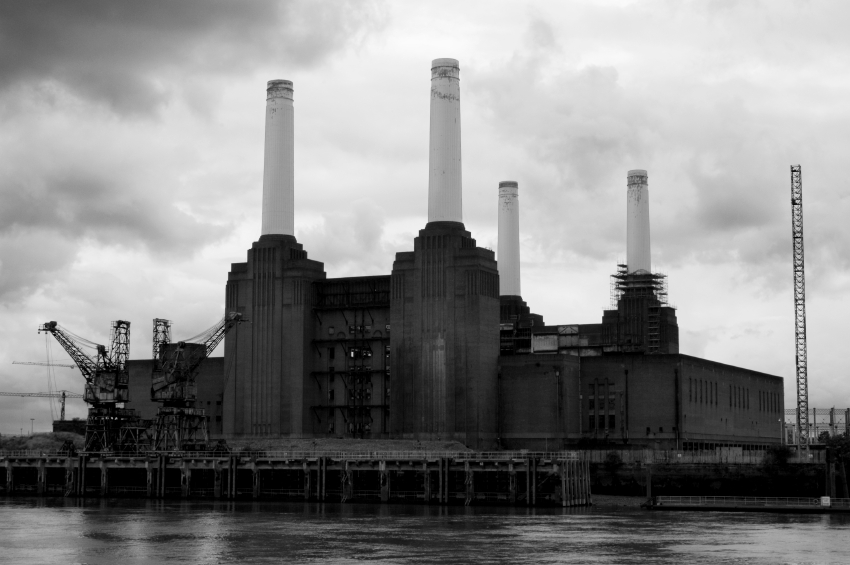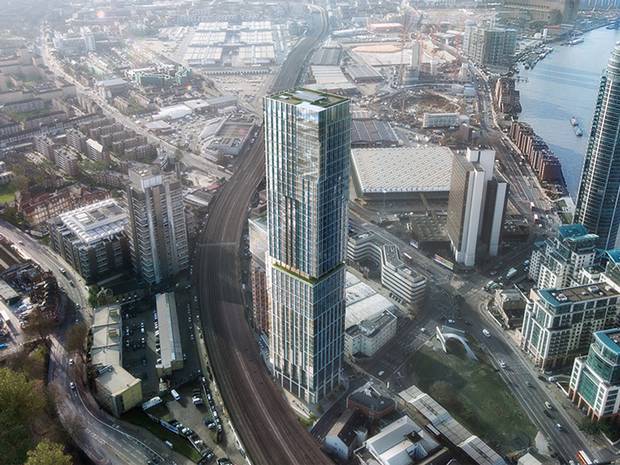Home » Uncategorised »
Asian Investors Abandon London Property Market
This article is an external press release originally published on the Landlord News website, which has now been migrated to the Just Landlords blog.

Battersea has been considered the hub of London’s property boom, but are the high-rise developments beginning to crash down?
The brokers and investors driving the redevelopment of the South London ex-power station and the surrounding Nine Elms area could be ready to abandon their property investment hopes and dreams.
One of the major stakeholders in the regeneration of the 42-acre Battersea site, Sime Darby, reported a “softening of interest” in buyers from Malaysia and other parts of south-east Asia, who have previously been responsible for the huge amounts of spending that saw the area named Singapore on Thames. The Malaysia-based firm insists that none of its existing sales agreements have been cancelled.
However, one estate agent has recorded a 10% decline in the value of luxury homes in Battersea and its nearby areas in the year to June.
Experts have blamed this on the strengthening of the pound in the last few months and the economic instability in the home markets of foreign investors.
Russian buyers are some of those that have been badly affected, as the rouble has dropped by 55% due to sanctions imposed after Moscow’s takeover of Crimea.
Knight Frank estate agents says that Russian purchases of prime London properties have decreased to 2.9% of the total in the first half of the year, compared to 6.7% in the previous six months.
Investors from Singapore more than halved to 1.4% and Chinese buyers fell to 9.4% from 10.9%.
Sime Darby – which owns 40% of the Battersea project – released a statement that reads: “We are witnessing softening of interest among buyers from Malaysia and south-east Asian regions, probably due to the prevailing volatile currencies and uncertainty in economic outlook. No exchanged contracts have been cancelled to date.”1
Nine Elms, home to the new American embassy as part of its £2 billion redevelopment, has been called the “greatest transformational story at the heart of the world’s greatest city”1. The project has helped fuel the luxury property boom, while less well-off Londoners struggle to get onto the property ladder and essential workers face a huge lack of affordable homes.
Last month, the area launched its latest development, the Aykon Tower. This is the capital’s first apartment building to be decorated by Versace, including a gold-mosaicked swimming pool.
Its Dubai-based developer insists there has been strong interest in the 50-storey block.
Last month, it was suggested that the Nine Elms area is experiencing “flat flipping”, where developers are pushing to sell 18,000 new homes over the next ten years, as investors who paid a 10-20% deposit on their un-built property sell the homes, due to fears that Asian investors purchased flats as currency speculation and prices will fall as they try to make huge returns.
A property expert says that London is no longer a haven for foreign investors seeking high yields and that investing in the capital is “risky”1.
Former professor of economic geography at the London School of Economics, Paul Cheshire, states: “Conditions in financial markets and such low interest rates have converted property and especially top-end housing into an investment asset – yields are so low on such a wide range of assets.
“Given the very inelastic supply of housing in Britain in general and in London in particular, there is a lot of risk in housing in England and the top end in London in particular.”1
As economists forecast a fall in the price of prime central London homes of 10-15%, some argue that reality is starting to hit the capital.
Online estate agent eMoov reports a 3% decrease in demand for housing worth £2m or more in May. Since May, demand has fallen in 60% of prime London boroughs, such as the City of Westminster and Kensington and Chelsea.
Founder of eMoov, Russell Quirk, comments: “I don’t think that there are many who will shed a tear for the well-heeled, sharp-suited Mayfair type property predators. They have long crawled along the golden streets of prime central London, yet it seems that the tide has turned.
“London has been a Monaco in the middle of Britain. But what comes up must come down and we are now starting to see a rebalancing with other parts of the country.”1
It is also unknown whether the market will cool further due to the Government’s plans to crack down on the dirty money being laundered in London’s property market.
Last month, Transparency International reported that offshore companies own over 36,000 London homes in jurisdictions that hide the identity of their owners, including around 9.3% in the City of Westminster.
These figures caused Prime Minister David Cameron to make a statement saying that properties in London “are being bought by people overseas through anonymous shell companies, some with plundered or laundered cash.”1
He vows to publish a new Land Registry report that lists foreign companies and the land they own in the UK.





